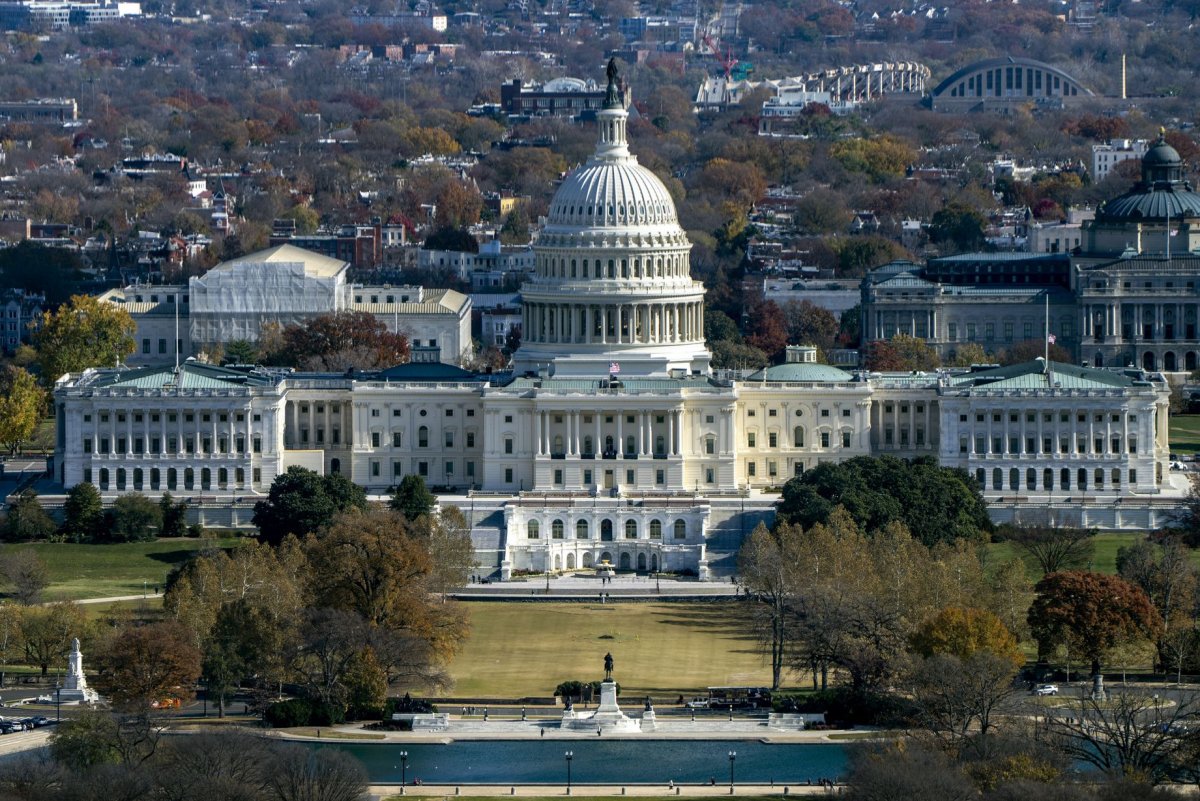The U.S. Capitol building is visible from the Washington Monument in Washington, D.C., as more than 200 state lawmakers call on Congress to reject a provision in the National Defense Authorization Act that would preempt state regulations on artificial intelligence. In a letter dated Tuesday, this bipartisan group of legislators emphasized the need for states to maintain their authority over AI governance amid concerns that a federal blanket prohibition would undermine local democratic processes.
Lawmakers from both sides of the aisle contend that allowing a broad preemption of state AI laws would stifle necessary innovation in policymaking. They argue that states are uniquely positioned to explore varied approaches to AI regulation that align with the specific needs of their communities. “A blanket prohibition on state and local AI and automated decision-system regulation would abruptly cut off active democratic debate in statehouses and impose a sweeping pause on policymaking at the very moment when communities are seeking responsive solutions,” the letter stated.
The context for this push is intertwined with ongoing national conversations about technology regulation. As the AI landscape evolves rapidly, state lawmakers argue that experimentation at the state level could lead to more effective governance, asserting that “varied approaches help build a stronger national foundation for sound policymaking.” They caution that freezing state action now could hinder vital progress at a crucial juncture.
The Trump administration has supported the proposed legislation, arguing that a single federal standard is essential to avoid a fragmented regulatory environment. Last week, former President Donald Trump expressed on Truth Social that the United States “MUST have one federal standard instead of a patchwork of 40 state regulatory regimes.” This sentiment echoes a growing concern among some policymakers and industry leaders about the challenges posed by disparate state regulations.
In a related development, an AI industry super PAC recently launched a $10 million campaign aimed at urging Congress to establish a cohesive national AI policy. Nathan Leamer, executive director of Build American AI, the PAC’s advocacy arm, highlighted the public demand for a uniform approach to AI governance, stating, “There is broad public demand for congressional action and a uniform national approach to AI.”
Despite this push for national standards, the coalition of state lawmakers remains firm in its belief that local governance can yield better outcomes. They assert that state-level regulations can provide tailored solutions that are more responsive to regional needs and concerns. “Freezing state action now would stifle needed innovation in policy design at a moment when it is most needed,” they concluded in their letter.
The debate over federal versus state regulation of AI reflects broader tensions in technology governance, particularly as advancements in AI continue to raise ethical, legal, and social questions. As various stakeholders grapple with the implications of AI, the call for a balanced approach that respects local autonomy while encouraging national coherence is becoming increasingly relevant.
Looking ahead, the outcome of this legislative proposal could set a significant precedent for how AI technologies are governed across the United States. The conflicting viewpoints from state lawmakers and federal officials underscore the complexities involved in establishing a regulatory framework that addresses both innovation and public safety. As the discussion evolves, the need for collaboration among state and federal entities will be critical in shaping the future landscape of AI governance.
See also AI Risks Spark $500B Market Losses; Expert Urges Urgent Regulatory Action
AI Risks Spark $500B Market Losses; Expert Urges Urgent Regulatory Action AI Regulations: Trump Urges Moratorium as 97% of Americans Demand Oversight
AI Regulations: Trump Urges Moratorium as 97% of Americans Demand Oversight AI Policy Gaps: Korea Invests 10.1 Trillion Won Amid Global $500 Billion AI Race
AI Policy Gaps: Korea Invests 10.1 Trillion Won Amid Global $500 Billion AI Race Insurance AI Regulations: 24 States Adopt New Compliance Standards Amid Data Privacy Challenges
Insurance AI Regulations: 24 States Adopt New Compliance Standards Amid Data Privacy Challenges AI Compliance Officers: Essential Role or Strong Governance Frameworks Enough?
AI Compliance Officers: Essential Role or Strong Governance Frameworks Enough?





































































